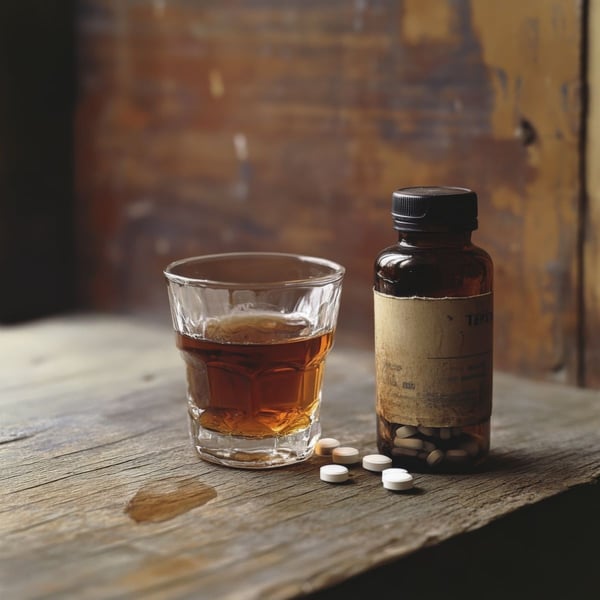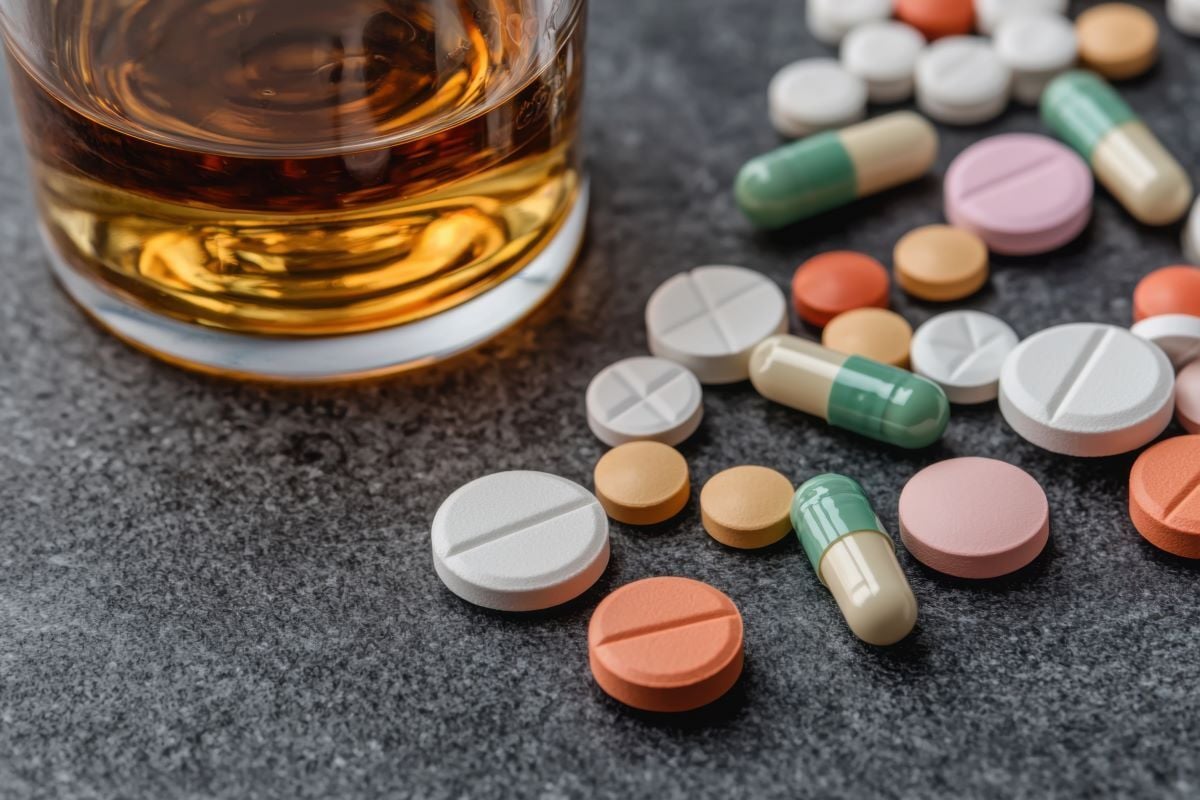Combining prescription medications with alcohol can be a risky and often dangerous decision. One such combination that poses significant health risks is Vyvanse and alcohol.
Vyvanse, a medication commonly prescribed for attention deficit hyperactivity disorder (ADHD), is a powerful stimulant, while alcohol is a central nervous system depressant. When taken together, these substances can lead to a range of physical and mental health issues. Understanding the dangers and potential consequences of mixing Vyvanse and alcohol is crucial for anyone prescribed this medication.
In this article, we'll explore how these substances interact, the risks involved, and safer practices for managing ADHD.
Why Do People Mix Vyvanse and Alcohol?

Some people mix Vyvanse and alcohol in pursuit of a heightened social experience, since Vyvanse can increase alertness and energy, while alcohol helps to relax and lower inhibitions. This combination may make them feel more outgoing and engaged in social settings. Others mistakenly believe that because Vyvanse is a stimulant and alcohol is a depressant, using them together will balance out their effects and help maintain a steady mood or energy level. (This is a dangerous misconception.) Additionally, some misuse Vyvanse as a "study drug" to enhance focus and concentration, only to turn to alcohol afterward as a way to unwind from intense work or academic sessions. For many, particularly young adults, curiosity and experimentation drive the decision to mix substances, often without fully considering the risks involved.
What Happens When You Mix Vyvanse and Alcohol
Mixing Vyvanse and alcohol can lead to serious health issues. Vyvanse, a stimulant, increases heart rate and alertness, while alcohol, a depressant, slows down brain function and impairs coordination. When combined, Vyvanse can mask how drunk a person feels, causing them to drink more than they should and raising the risk of alcohol poisoning. This mix puts extra strain on the heart and can lead to palpitations, high blood pressure, or even heart attacks. Mentally, it can worsen anxiety, depression, and cause extreme mood swings or paranoia. Additionally, with both substances affecting judgment and coordination, the chances of accidents and risky behaviors significantly increase.
Physical Side Effects of Mixing Alcohol and Vyvanse

Mixing Vyvanse and alcohol comes with a host of physical, mental, emotional, and behavioral side effects. Here are some common physical side effects:
Physical Side Effects:
- Increased Heart Rate: The stimulant effects of Vyvanse can cause a significant increase in heart rate, which is further exacerbated by alcohol.
- High Blood Pressure: Both substances can elevate blood pressure, putting extra strain on the cardiovascular system.
- Heart Palpitations: Irregular heartbeats or palpitations can occur, increasing the risk of heart-related complications.
- Nausea and Vomiting: The combination can irritate the stomach, leading to nausea and vomiting.
- Dehydration: Alcohol dehydrates the body, and the stimulant effects of Vyvanse can exacerbate this, leading to severe dehydration.
- Headaches: The strain on the body from these substances can result in frequent and intense headaches.
- Sleep Disturbances: Vyvanse can cause insomnia or poor sleep quality, which alcohol can initially mask but ultimately worsen.
- Alcohol Poisoning: Vyvanse can mask the effects of alcohol, leading to excessive drinking and an increased risk of alcohol poisoning.
Mental And Behavioral Side Effects of Mixing Vyvanse And Alcohol
Some common mental side effects of mixing Vyvanse and alcohol include:
- Increased Anxiety: Both substances can heighten feelings of anxiety, leading to severe anxiety attacks.
- Depression: The depressant effects of alcohol combined with Vyvanse can worsen depressive symptoms.
- Mood Swings: The contrasting effects on the central nervous system can cause unpredictable and severe mood swings.
- Paranoia: Users may experience heightened paranoia or irrational fears.
- Impaired Judgment: The combination impairs judgment, increasing the risk of making dangerous decisions.
- Memory Problems: Both substances can negatively impact short-term and long-term memory.
Behavioral side effects include:
- Risky Behaviors: Impaired judgment and coordination increase the likelihood of engaging in risky or dangerous behaviors.
- Aggressiveness: The stimulant effects of Vyvanse combined with alcohol can lead to increased irritability and aggressiveness.
- Accidents and Injuries: Impaired coordination and judgment raise the risk of accidents, falls, and injuries.
How Long After Taking Vyvanse Can You Drink Alcohol?
For individuals taking Vyvanse, it is recommended to wait at least 24 hours after taking the medication before consuming alcohol. This waiting period allows adequate time for the stimulant effects of Vyvanse to diminish and for the medication to clear from the system. Vyvanse typically remains effective for up to 14 hours after ingestion, so waiting ensures that any potential interactions between Vyvanse and alcohol are minimized. It is essential to follow this guidance to avoid the risks associated with mixing these substances, and consulting with a healthcare professional for personalized advice is advisable to ensure effective management of ADHD and overall health.
Treatment for Vyvanse and Alcohol Addiction

Treating addiction to both alcohol and Vyvanse involves a multifaceted approach that includes detoxification to safely manage withdrawal symptoms, behavioral therapies like CBT to address underlying issues, and support groups for ongoing encouragement and community. Medication-assisted treatment might be utilized where beneficial, alongside holistic methods such yoga, mindfulness, nutrition, art, music, and more.
At Avenues Recovery Center, we provide personalized treatment plans designed to support your recovery journey. Reach out to us today to explore how we can help you or your loved one achieve lasting sobriety and a fulfilling life beyond addiction.


